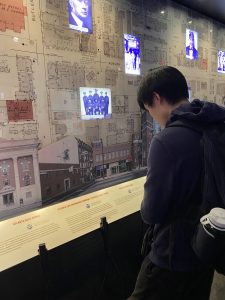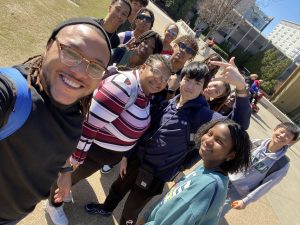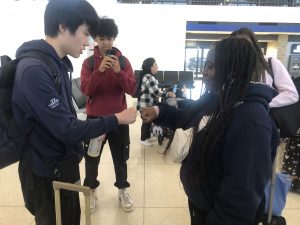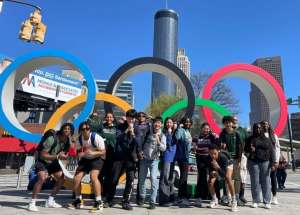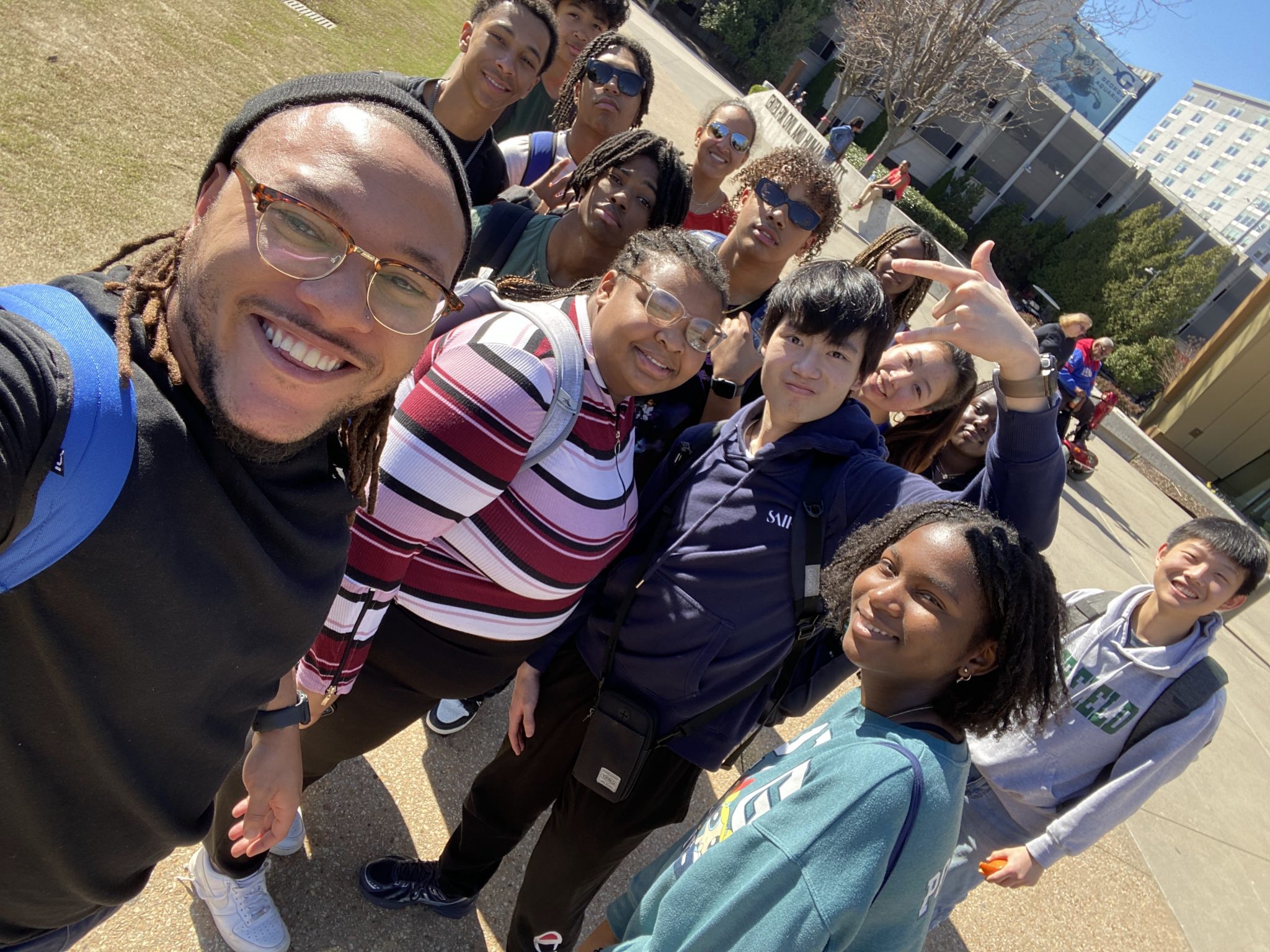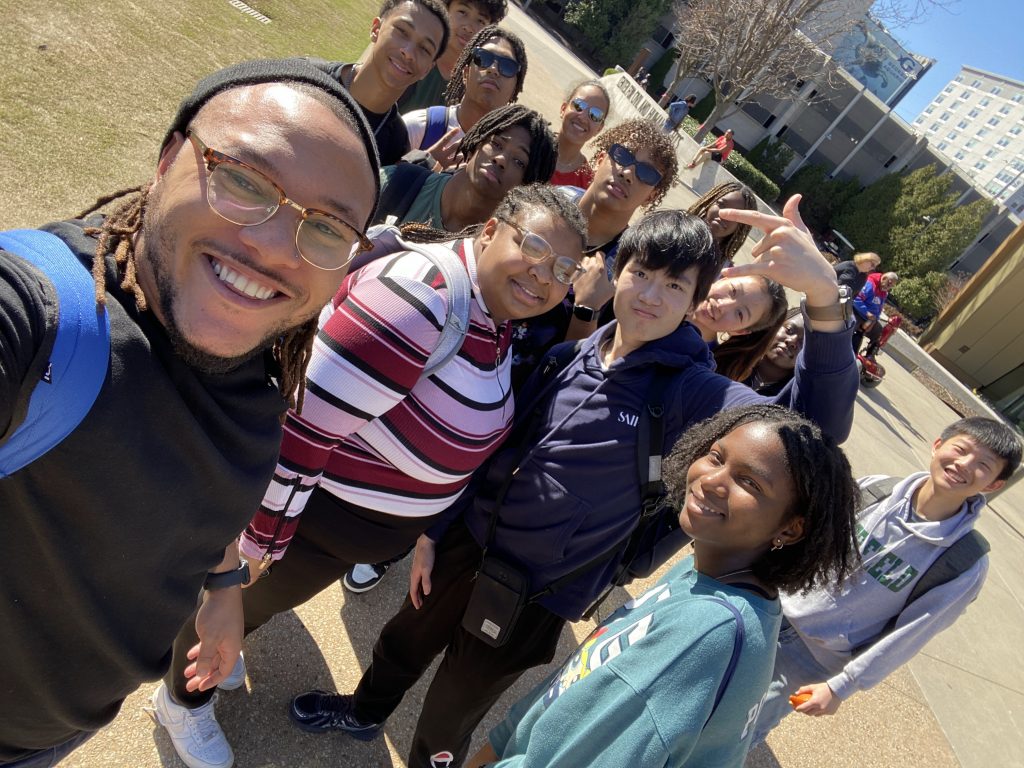Rich Zhou ‘26, reflects on the lessons learned and the importance of building community.
Imagine having considered yourself a fervent learner of the Civil Rights Movement and then having a seven-day trip tell you that you knew little about the Movement. That’s what the American South trip did to me.
On this trip, we engaged in two main forms of learning: museums and workshops, and each gave me ton after ton of valuable information. It’s surprising how much I did not know about the Civil Rights Movement even when I came with the expectation of learning a lot – it quite literally changed my whole opinion on protests, and it connected me better emotionally to other issues of the day related to the struggle for equity.
At the museums, I learned not only about the Civil Rights Movement but also about American slavery as a whole, giving me a much better perspective on how things ended up where they did. I learned about historical events, like lynchings and slave revolts and peaceful protests. I learned about famous people, like Martin Luther King (both Sr. and Jr.), John Lewis, and Ida B. Wells. But most importantly, many of the museums connected what happened in the Movement (which deceptively seems like a long time ago, especially for this generation) to what is happening today, raising my attention to ongoing issues. I’m grateful that these museums did this for me – the point of learning history is so that one strives not to repeat it, so connecting history to the present is as important as learning the history itself.
We had some workshop sessions during a few of the days, exploring issues such as gerrymandering, prison conditions, and landmark events in the struggle for civil rights. Different from the museums, people (sometimes successful civil rights lawyers, sometimes our beloved trip leaders, and sometimes with a Freedom Rider) talked to us and took us through everything. We bombarded our workshop leaders with questions and thoughts, something unique to this type of learning. My most unforgettable experience was when we met with Dr. Bernard Lafayette, a Freedom Rider who stood up against unlawful segregation by integrating with white volunteers on buses to the South. We listened to him tell his story, asked questions that were extremely interesting, and even learned a song he and his fellow Freedom Riders made up in jail. I had the question of whether there were people not originally part of the Freedom Riders movement who supported the Riders in their endeavors, and I was fortunate enough to get a response from Dr. Lafayette himself, who told me that the white people who did not complain about the integration actually helped their movement. Because I was able to have my question answered, I now understand that a significant portion of the Southern white population was not violently racist. That information was important because it is all too easy to lose oneself in all the imagery of the KKK and other terrorist organizations and forget that the South wasn’t only KKK members.
What was even more important than all the knowledge this trip had to offer was the bonding opportunities with people you may not have previously known well. I did not recognize the faces of half the students on the trip before we set off, but I consider many of them to be friends now. We played table games at dinner, exposed ourselves to each other in times of emotional need, and enriched each other’s trip with unique questions and comments. The students, faculty, and Envoys (our trip planners) on this trip were part of what made this experience both educational and enjoyable. Importantly, this is the unique Deerfield experience: here, we value our community more than almost everything else; it was probably what made us so willing to grow together and build a community together.
